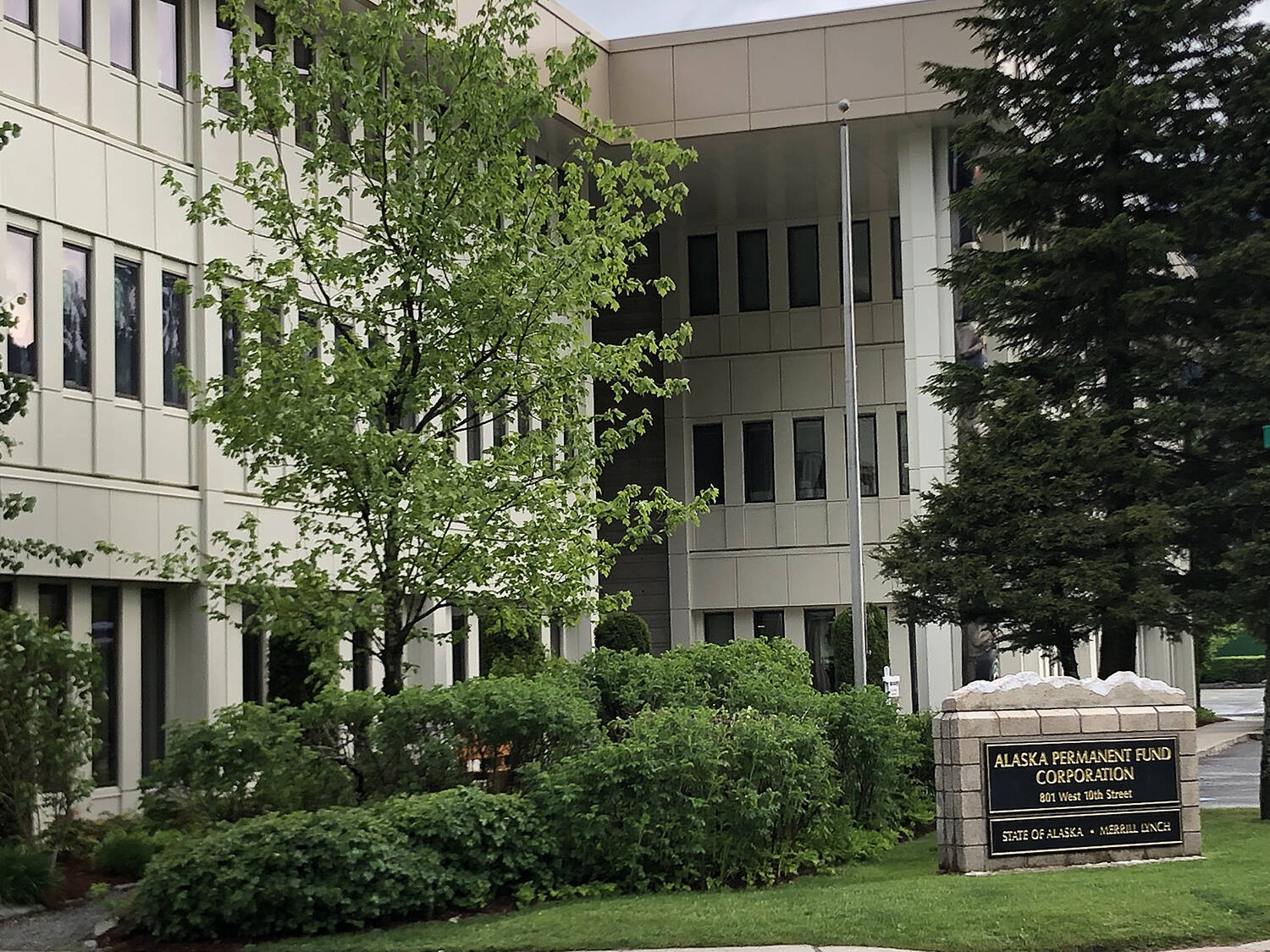The trustees of the Alaska Permanent Fund Corp. are considering whether to back legislation that could exempt the corporation from the state’s open meetings act and the state’s procurement rules, as well as conceal personnel records from public records requests.
Trustees could also find themselves supporting a proposed constitutional amendment that restructures the spendable portion of the Alaska Permanent Fund, they said.
During the corporation’s annual meeting on Thursday in Anchorage, the six-member board of trustees spent almost an hour discussing an updated strategic plan intended to increase the $74.9 billion Permanent Fund’s value to more than $100 billion.
The fund’s value is critical to state finances because state law automatically transfers a percentage of the fund to the state treasury each year. That transfer accounts for more than 50% of the state’s general-purpose revenue.
If the amount of the fund grows, so will the amount of money available for general spending. But in four of five years since the transfer was created, the fund has failed to earn enough money to compensate for withdrawals and inflation, losing value in real terms.
A final plan with specific goals isn’t expected until Oct. 30, corporation CEO Deven Mitchell said, but trustees offered their opinions on a draft version presented at the meeting.
Much of the discussion centered on possible changes to investment management, but trustees also considered changes to state law that might give the corporation “greater flexibility” as it pursues investments.
Former Alaska Department of Environmental Commissioner Jason Brune, appointed by Gov. Mike Dunleavy to a public seat on the board of trustees, expressed strong support for exempting the board from the state’s public meetings act, which requires advance public notice of occasions when multiple board members meet together.
“Fast-moving discussions and decisions” on investments could require meetings on short notice, he suggested, even if final action is taken place in public.
Fellow trustee Craig Richards and board chair Ethan Schutt opposed the idea, saying that the credibility of the board depends on public disclosure.
“I don’t think anything we’re doing is so special and different from any other public corporation or municipal government that follows these rules,” Richards said. “It’s a little bit of hubris to say that we can’t operate in the same manner that others do without success.”
The Permanent Fund Corp. is also bound by the state’s procurement code, which has led to frustration for prior management. During her tenure, former CEO Angela Rodell repeatedly said that while she needed to fill out procurement requests for pencils, she could make hundred-million-dollar decisions on investments without permission.
Richards said the traditional lowest-bidder approach doesn’t always make sense.
“Traditional procurement in the context of a service organization is very awkward,” Richards said.
Trustee Ellie Rubenstein said that it has interfered with the hiring of investment workers, and Richards said that most of the time, “you don’t want the lowest-priced lawyer.”
He also said that hiring Mitchell “took an extra 90-120 days” because of existing rules.
Brune said that it should be noted that the Alaska Legislature has exempted itself from the Open Meetings Act and from aspects of the procurement code.
Adoption of the strategic plan could have the trustees advocating for changes that would affect the way the state handles its finances.
The annual transfer from the Permanent Fund to the state treasury accounts for more than half of the state’s general-purpose revenue, and the trustees have already called for a hard cap on that transfer to prevent future legislators or governors from overspending from the fund.
A constitutional amendment — several have been proposed in the current Legislature — could also head off the looming exhaustion of the fund’s spendable account.
Brune said that reaching the required legislative supermajority for a constitutional amendment will be difficult, and he reminded fellow trustees that even if lawmakers support a constitutional amendment, convincing voters will be another fight.
Adopting a constitutional amendment requires the votes of a majority of participating voters at the next general election.
“Unless they know they’re going to be guaranteed a tripling of their dividend or something, they’re going to question it,” Brune said. “It’s something I’m nervous about: getting it across the finish line.”
The fund has repeatedly earned less than the amount transferred to the state treasury, and the draft plan suggests that the fund could “consider offices located out of state or international” in order to increase returns.
If the Permanent Fund’s earnings target is too high because withdrawals exceed revenue, the board might advocate for reducing the amount of the annual transfer to the state treasury “or increasing the state oil revenue inflows” to the Permanent Fund either permanently or during years when oil prices are high.
At least one other state with permanent funds has taken both approaches. In 2022, New Mexico legislators deposited $8 billion into that state’s various permanent funds and increased the amount deposited into those funds each year.
Both states enjoyed a surge in revenue as oil prices rose following the Russian invasion of Ukraine, and New Mexico produces four times as much oil as Alaska, but that state deposited more than eight times as much oil revenue into its permanent funds as Alaska did.
Alaska made some deposits into a savings account that is separate from the Permanent Fund last year and spent most of the extra revenue on increasing the amount of the Permanent Fund dividend.
• James Brooks is a longtime Alaska reporter, having previously worked at the Anchorage Daily News, Juneau Empire, Kodiak Mirror and Fairbanks Daily News-Miner. This article originally appeared online at alaskabeacon.com. Alaska Beacon, an affiliate of States Newsroom, is an independent, nonpartisan news organization focused on connecting Alaskans to their state government.

